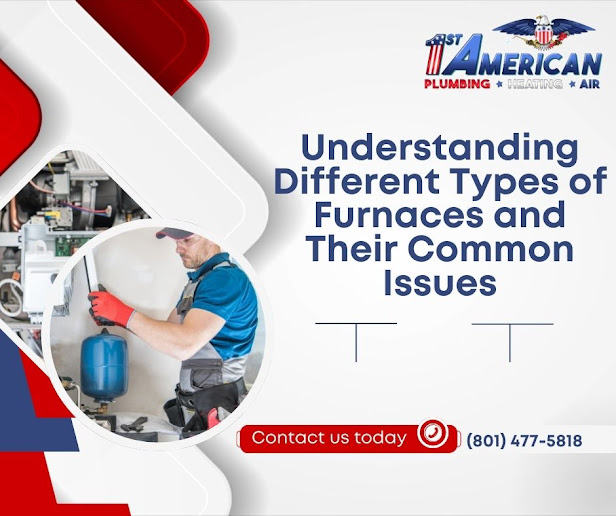Understanding Different Types of Furnaces and Their Common Issues
Furnaces are the best choice for home heating and for carrying out industrial work. They keep the home warm and are known for their longer life span and increased efficiency. These furnaces use natural gas, heating oil, propane, etc. You can get the type of furnace that fits your budget and energy needs. However, as all appliances face some issues, the same is true with these types of furnaces. Let’s walk you through the same.
Types of Furnaces and Their Issues
- Natural Gas Furnaces: These are highly economical and energy-efficient furnaces. Most American homes use these energy-efficient furnaces. The variety may vary according to the region. These furnaces can face problems like delayed ignition, dirty filters, malfunctioning thermostat, a noisy furnace, bad odor, etc. You must contact furnace repair professional if any of this issue occurs.
- Electric Furnace: If your home does not have a natural gas line, then getting the electric furnace is a great option. It uses an electric heating system to spread warm air through the ductwork of your house. They are affordable, small in size, and can fit any area in your home. These furnaces face issues such as a thermostat, a bad blower motor, failing valves and capacitors, dirty fuse, loose wires, etc., which makes them less energy-efficient.
- Oil Furnace: The oil furnaces are less in use because of the increased prices of the fuel oil. They use specialized burners to convert oil into mist. These furnaces are made of heavy, thick steel metal to strengthen them. It makes this type of furnace strong, and with a specialized heat exchanger, they work 90% more efficiently. The common issues with them are problems with burner flame, oil boiler not starting, clogged filters and blowers, continuous chimney smoke, etc. If any of these issues erupt, contact the HVAC services provider to fix them.
- Propane Furnace: These run on propane and have an external fuel tank that can carry up to 2,000 pounds of propane gas. They can heat your home for months before they need to be refilled. People who do not have natural gas access use propane furnaces. This type of furnace is quite efficient, but it can have issues with air filters, thermostats, blower motors, belts, etc. Contact HVAC personnel to fix these issues.
Conclusion
When shopping for a furnace, check out its size, standardization of components, brand, fuel tank, mechanical and electrical parts, etc. Contact the best specialist for Furnace Repair in Salt Lake City from 1st American Plumbing, Heating, and Air Company. Book affordable professionals to fix your furnace in Salt Lake City.
The Article "Understanding Different Types of Furnaces and Their Common Issues" Was Originally Posted Here.




Comments
Post a Comment